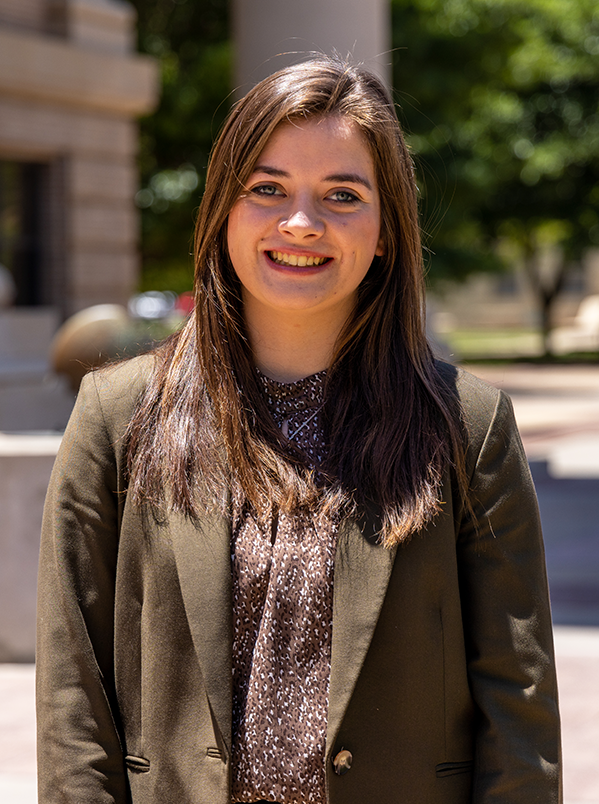Maryann Heffley
McNair Scholar 2022
Maryann Heffley is a criminal justice major in the Department of Political Science and Criminal Justice at West Texas A&M University. She is a senior anticipating graduation in December of 2022. Maryann intends to attend law school post-graduation and obtain her J.D. with a concentration in environmental law and policy.
“There is an astounding number of opportunities, resources, and knowledge that derived from being a McNair Scholar, however, one that I know I will cherish forever is the friendships and connections that were built within my cohort. As a McNair Scholar, I was exposed to the graduate school process, research techniques, financial literacy resources, and much more. By the end of my experience, I had a research project that I presented at conferences and discussed with colleagues in the field of law. I am extremely grateful for my time as a scholar and how it has prepared me for my future endeavors. Although it was not always easy by any means, it was completely worth every milestone in every way imaginable!" - Maryann Heffley

"Seeking Injustice through Inadmissible Statements: Selective Hearing or Selective Accountability?"
Faculty Mentor: Dr. Brandon Bang
Prosecutorial misconduct has been disregarded and largely ignored in the academic literature and by the courts. The most powerful criminal justice actor, the prosecutor, has an unwavering amount of discretion and a duty to seek justice. Their discretion resides in their decision-making authority. Prosecutors have an obligation to seek justice but are judged if they are competent at their job by the number of convictions achieved. The incentive structure is thus offset, and prosecutorial misconduct occurs. This study expands on the research conducted by Bang (2019) titled, “Seeking Injustice: A Study of Prosecutorial Misconduct in Washington State.” Bang (2019) sought to define prosecutorial misconduct, its forms, and its rate of occurrences throughout the state of Washington by examining hundreds of appealed court cases from 2007 to 2016. According to Bang (2019), inappropriate or inadmissible statements were the most frequently occurring type of misconduct. However, this leads to a further question: What do these inappropriate or inadmissible statements consist of, and when do they occur? In order to answer this question, this study investigates inappropriate or inadmissible statements made by the prosecution in cases in the county in Washington State with the most prosecutorial misconduct from 2007 to 2016—Pierce County. This study identifies the most common inadmissible statements, identifies when they occur, whether the defense objected, and proposes reform options to limit and reduce the most common and detrimental forms of misconduct in the courtroom.
